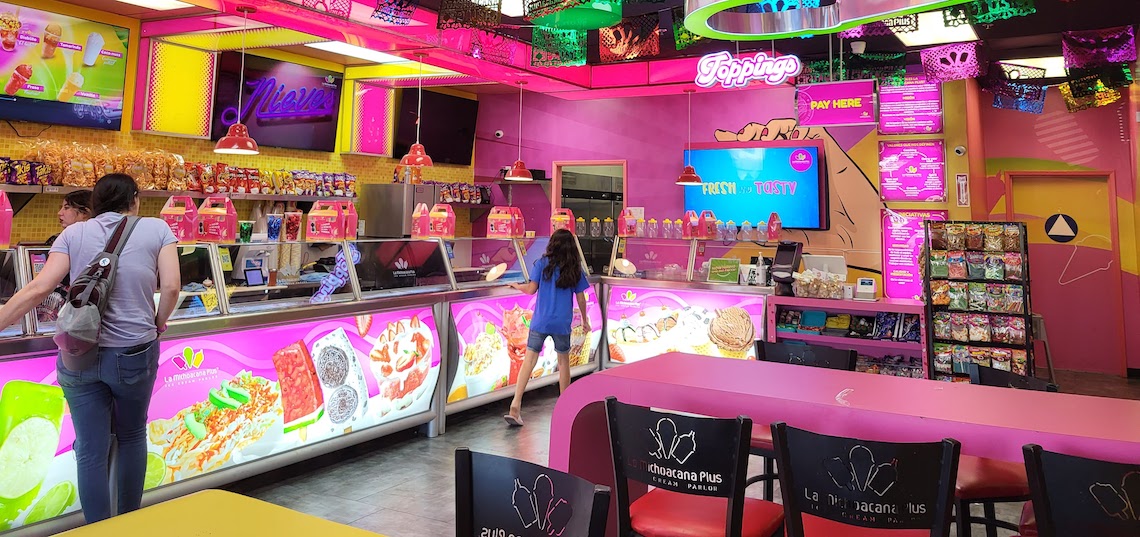
La Michoacana Plus ice cream shot in Selma is seen in this September photo. Similar eateries were eligible for the Restaurant Revitalization Fund. Photo by Gabriel Dillard
Written by
With the worst days of the COVID-19 pandemic hopefully in our rearview mirror, local business owners may see their relief debts forgiven, with others scheduled to continue or begin repayment on more recent loans.
Businesses that applied for federal pandemic relief did so through one of four programs: Paycheck Protection Program (PPP), Shuttered Venue Operators Grant (SVOG), Restaurant Revitalization Fund (RRF) and COVID Economic Injury Disaster Loan (EIDL).
Of the four assistance options, funds received from COVID EIDL and PPP programs may include required repayments of distributed funds.
“Much like other parts of the country, as well as other parts of California, the pandemic assistance that was available through the SBA was really a lifeline for small businesses,” said Dawn Golik, Fresno district director of the U.S. Small Business Administration (SBA).
In 2020, Fresno County was among the first in California to issue shelter-in-place orders and was also heavily impacted by Governor Newsom’s pandemic-response mandates, which limited indoor dining and shuttered bars and entertainment venues statewide.
Golik added that the Central Valley in particular has a higher number of minority and women-owned businesses than other regions, with 30% of RRF recipient businesses being named corporate-owned, compared to a statewide average of 45%.
The number of Central Valley sole proprietorships and LLC companies reflected similar trends when compared to statewide findings.
Locally, Golik noted that nearly all businesses had the same concern at their core — keeping the businesses running.
“The thing that I know kept most business owners awake at night was worrying about paying their employees,” she said. “Not only through the Paycheck Protection Program and the Economic Industry Disaster Loans but also shuttered venues and the Restaurant Revitalization Funds, businesses got the funds they needed to cover a lot of things, but most importantly to pay their employees.”
Funds granted to businesses through the RRF, for example, could not only be used to compensate employees who were temporarily unable to work due to restrictions, but also helped businesses cover business expenses, maintenance, operations, rent and other day-to-day expenses.
Overall, 174 Fresno County businesses received RRF funds, accounting for $45.7 million of the $5.7 billion in total funding that was distributed in California.
Districts 16, 21, 22 and 23 in the Valley — stretching from Merced to Bakersfield — combined for a total of $107.7 million in RRF loans to 431 different businesses throughout the region.
Funds distributed through each of the relief plans had in place requirements that mandated the usage of at least some portion of the funds provided. For example, RRF funds specifically required at least 60% of funds to be dedicated to payroll before funds could be allocated elsewhere within the recipient’s business.
In addition, PPP loans could be fully forgiven if used for approved expenses, which Golik said many Valley businesses have received approval for.
“The Economic Injury Disaster Loan is the only direct loan that the SBA makes,” Golik said. “It’s 30 years of low interest, long-term capital for businesses to use for working capital.”
Of the four options, only EIDL relief loans function as traditional loans.
“In many cases, businesses received multiple loans,” Golik said. “As a business owner you could receive a PPP loan, and an idle (SVOG), and other assistance; some businesses received a combination of those programs.”
In addition to traditional loans to facilitate the continued operation of businesses throughout the pandemic, the SBA awarded SVOG grants to venue operators such as movie theaters, performance halls and similar venues.
More than $18.4 million in SVOG grants were awarded to 18 small businesses in Fresno County, with more than half of the businesses qualifying reporting their business as “live venue operator or promoter.”
The remaining businesses reported as talent representatives (17%) and movie theaters, museums and live performing arts businesses (34%).
Unlike many of the businesses utilizing the other three types of relief, many operators who relied on SVOG funds did so with no other option, reflected in the crippling impact the pandemic had on the entertainment business nationwide.
Payments on loans received during the pandemic will be fast approaching, with NIDL disbursements approaching the end of their 30-month deferment period.
“For businesses who may have taken out a loan in the beginning of 2021, they are rapidly coming up on the end of that deferment period,” Golik said. “I think it’s important for businesses to start to plan now as their loans are coming due or will soon be coming due.”
The SBA has set up an online dashboard to assist in loan payback, and also offers weekly training events in both English and Spanish to help prevent costly late fees and other penalties.
In addition to weekly training events, the Fresno SBA is also one of ten nationwide to participate in a LinkedIn pilot program assisting business owners in discovering financial resources and other assistance as well.








